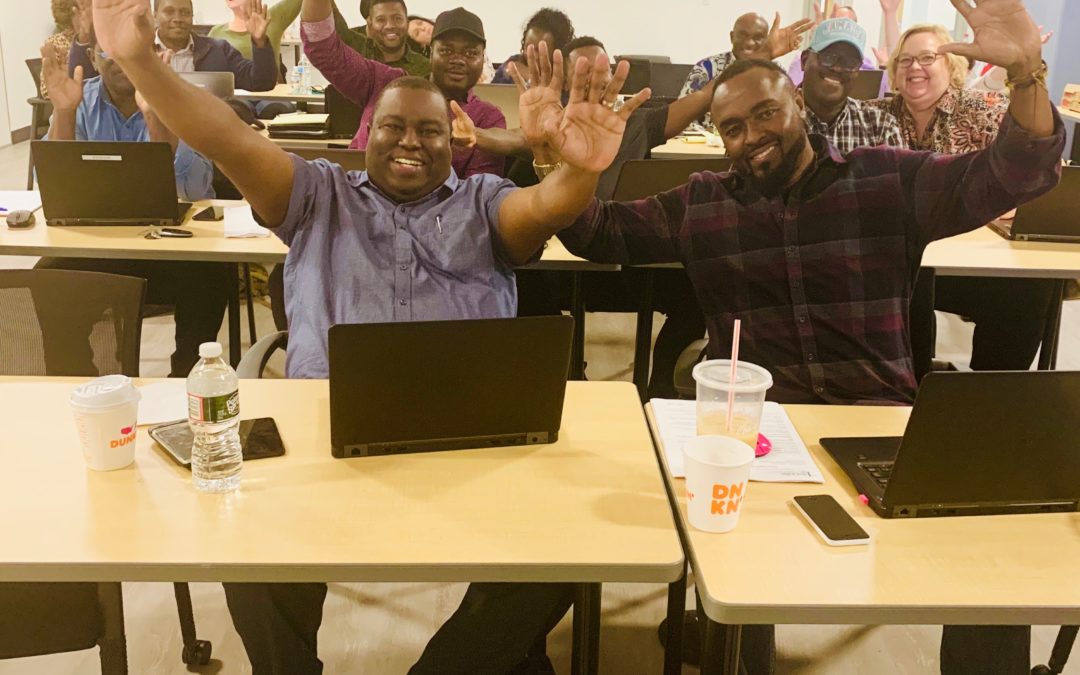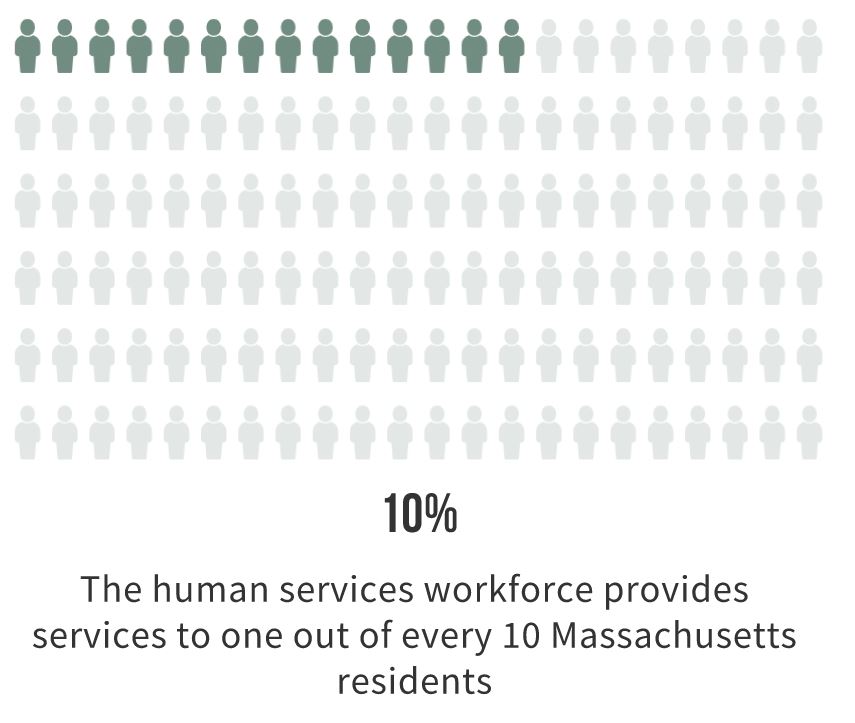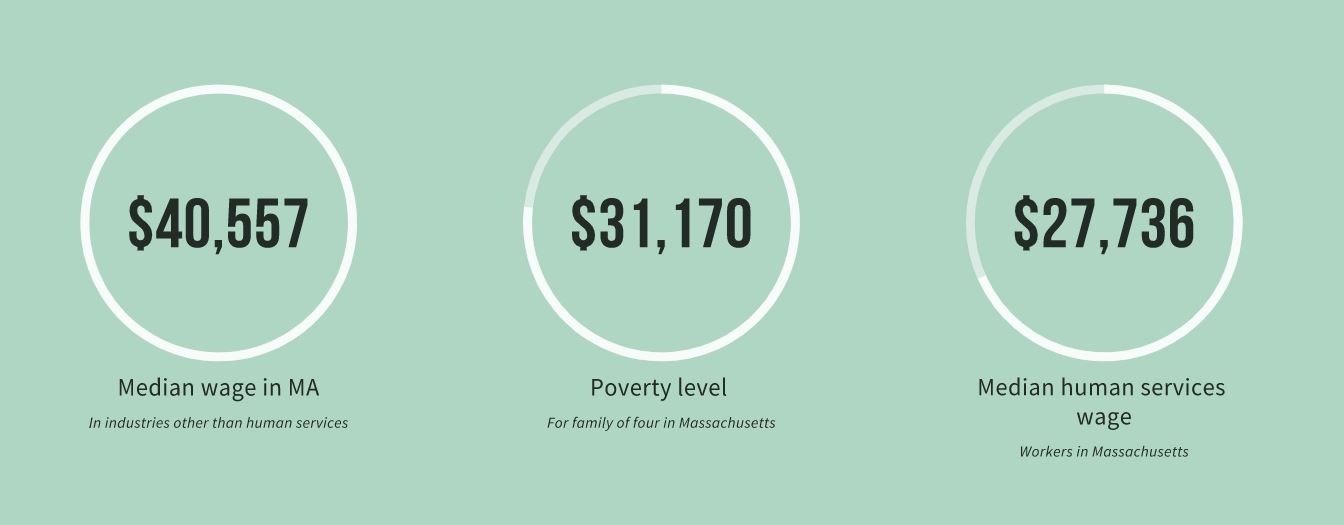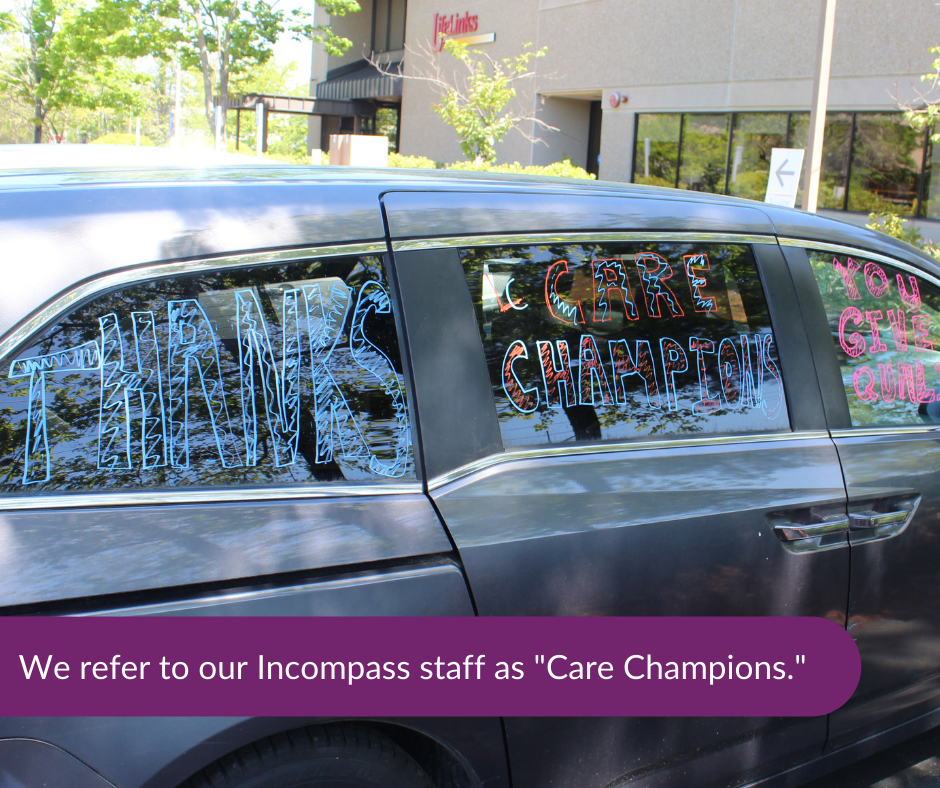
We cannot keep asking more of human services workers
by Jean Phelps, CEO, Incompass Human Services and President, New England Human Services Collaborative
Staffing crisis. Worker shortage. “The Great Resignation.” Over the past year, a variation of these phrases has been presented in news stories and op-eds to citizens of the Commonwealth, describing the challenges that businesses are facing to return services to pre-pandemic levels. In the human services industry, we were facing a “workforce crisis” for years before COVID began. Low rates of reimbursement and a shrinking labor pool had driven industry vacancy rates to 40% or more by the end of 2019…then came COVID.
Today our programs cannot operate at full capacity because we do not have enough staff to serve those in need. We have a long waitlist of individuals and families who are frustrated with waiting to return to the programs that we had to close because of pandemic restrictions in 2020. Others are seeking placement into a program for the first time having graduated from special education and are seeking adult supports and services. As someone who has dedicated my entire 36-year career to this work, this scenario is heartbreaking; for want of staff, Incompass would be serving these folks.
Given that the human services workforce provides support to one out of every ten people in Massachusetts, the current staffing shortages in our field have real consequences for the people we support. Incompass Human Services has provided critical supports to people with intellectual and developmental disabilities throughout greater Lowell and greater Lawrence for over 65 years. Every Incompass staff person, who we proudly call our Care Champions, no matter their role, is motivated to make a positive impact on our community. Their dedication and focus ensure that we can deliver on our mission to empower the people we support, even under the most challenging of circumstances. But Incompass (and other similar organizations) are facing unprecedented challenges to recruit and hire Care Champions to deliver the supports that the people we serve deserve.
Right now, the path to resuming a full complement of services is still not clear, and our ability to impact compensation to incentivize employment in human services is limited. While our highly skilled staff are dedicated – and we do enjoy a healthy rate of employee longevity – the fact is that the pay scale in the human services field is not competitive. Even after the infusion of short-term governmental COVID-based relief funding, we don’t have the ability to adequately compensate our current workforce or hire new workers. Approximately 98% of funding for Incompass Human Services comes from state contracts with direct billing to the state, and those reimbursement rates are determined through a rate-setting process by the state of Massachusetts. Ultimately those rates determine the salaries we can pay our Care Champions.
While we have been fortunate to receive American Rescue Plan Act (ARPA) funds that were disbursed to front-line employees in the form of one-time retention bonuses and other limited compensation the ARPA funds are short-term. To have a meaningful and permanent impact on the workforce, funding to raise salaries must be given permanently, or we will continue to struggle to recruit and retain staff.
Consider that the poverty level for a family of four in Massachusetts is $26,508 according to the 2021 MassHealth income standards. And the median wage for a Massachusetts human services worker is $27,736 according to the Providers’ Council. Given that the Providers’ Council report cites the median wage in all other industries in Massachusetts as $40,557, recruiting staff for this work – an essential, person-facing job that is both rewarding and demanding – is becoming an impossible task.
Keep in mind, that according to the Bureau of Labor Statistics, the consumer price index (CPI) increased by 7.5% in January from a year ago, so the wage gap is growing. While companies in the private sector can offer more generous compensation packages to attract new workers human services organizations like Incompass that are tasked with caring for those who are most vulnerable are not able to “charge more” or “give smaller portions” to offset costs or offer competitive compensation. As a result, too many people with intellectual and developmental disabilities who rely on our services continue to be without a program.
Through it all, the Care Champions at Incompass Human have been the most awe-inspiring group of people I have ever been around. While we rightly acknowledge and show gratitude to the front-line workers who have been working in our community throughout the pandemic, those direct support professionals who do this work are invisible heroes. They are not seen on the nightly news under their PPE, they are not celebrated as the “essential” workers that they are, they are not even recognized by the federal department of labor as an occupation worthy of classification. Yet the 300 Incompass Care Champions do their jobs because they genuinely and deeply care about the people they support and appreciate the relationships they have forged over the years.
We cannot keep asking the human services workforce to accept a wage that devalues who they are and what they do. We cannot minimize the role that direct support professionals fill in our communities. We cannot ignore the fact that these hourly workers are skilled professionals who are caregivers, skill-builders, activity specialists, meal preparers, and lifesavers. We cannot keep messaging families and caregivers that we do not have the staff to support their loved ones to be served in one of our programs.
We must truthfully and realistically acknowledge that in order to do right by persons with intellectual and developmental disabilities, our seniors, people with physical disabilities, people suffering from substance abuse, families facing food insecurity, we must first do what’s right for the people who support them.
Mahatma Gandhi’s words resonate with me “The true measure of any society can be found in how it treats its most vulnerable members”. How will we be measured if we don’t lift up the workforce that supports the most vulnerable?




